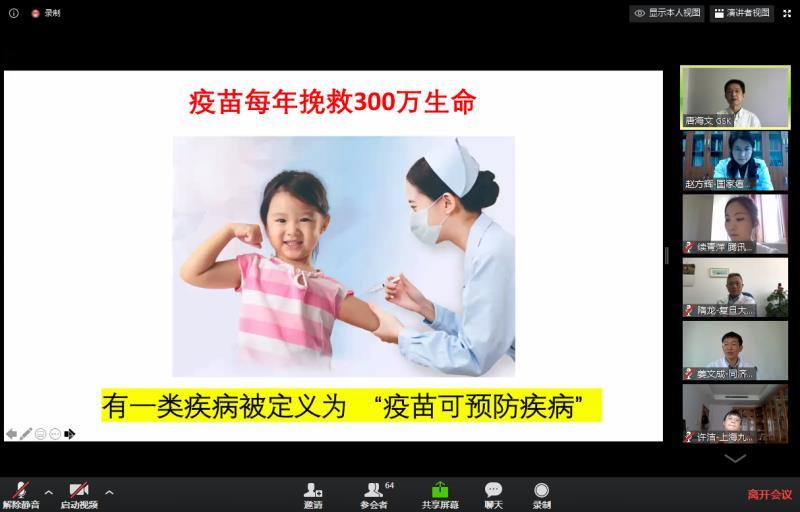China lacks vaccine awareness, survey shows


A recent online survey found that the awareness of vaccination among adults to boost immunity and prevent diseases needs improvement among the public.
Only around half of the survey respondents believed that vaccination could boost immunity, according to the poll results shared by medical experts during an online live broadcast held on Saturday, the China Prophylactic Vaccination Day.
The poll conducted by Tencent Healthcare and British pharmaceutical company GlaxoSmithKline (GSK) found that 42 percent, 53 percent and 63 percent of the people, respectively, did not know that cervical cancer, lung cancer and shingles, a viral disease characterized by a painful skin rash with blisters in a localized area, are basically preventable through taking vaccines.
Only 22 percent of the respondents agreed that women need to be vaccinated but actually some vaccines, including those against the human papilloma virus (HPV), which causes cervical cancer, give due protection to females, doctors said.
The online survey polled nearly 12,300 adults from April 14 through 20.
Zeng Guang, chief epidemiologist with the Chinese Center for Disease Control and Prevention, said during the live broadcast that the gap between the rates of vaccination in China and some developed countries is huge.
He said, for example, the rate of injecting flu vaccines is around 2 percent in our country while the figure for developed countries is around 50 percent.
"Vaccines are not only for children but also for adults and they are significant in improving health among the elderly," Zeng said.
For example, vaccine is the most effective measure to largely prevent shingles, a disease that mainly affects the middle-aged and elderly, while medical therapies are limited so far, said Jiang Wencheng, deputy director of combined treatment of traditional Chinese medicine and western medicine at Shanghai Skin Disease Hospital Affiliated with Tongji University.
Experts also pointed out the key role that adjuvants play in vaccines to achieve their protective effect.
"An innovative adjuvant system can improve the effect of immune response and thus realize the protection against certain diseases," said Sui Long, chief doctor at the cervical disease diagnosis and treatment center at the Obstetrics and Gynecology Hospital of Fudan University in Shanghai.
The survey results also showed that 27 percent of people were not clear that vaccinations are available at community healthcare centers and grassroots-level centers of disease control and prevention.
- Five trapped in coal mine flooding in Northeast China
- Long March 5 rocket deploys tech demo satellite into space
- China launches communication technology test satellite
- Spokesperson warns against aggression toward mainland fisherman
- Lhasa wetland reserve recognized as world's highest altitude wetland
- Chengdu woman sentenced for fatally stabbing neighbor




































